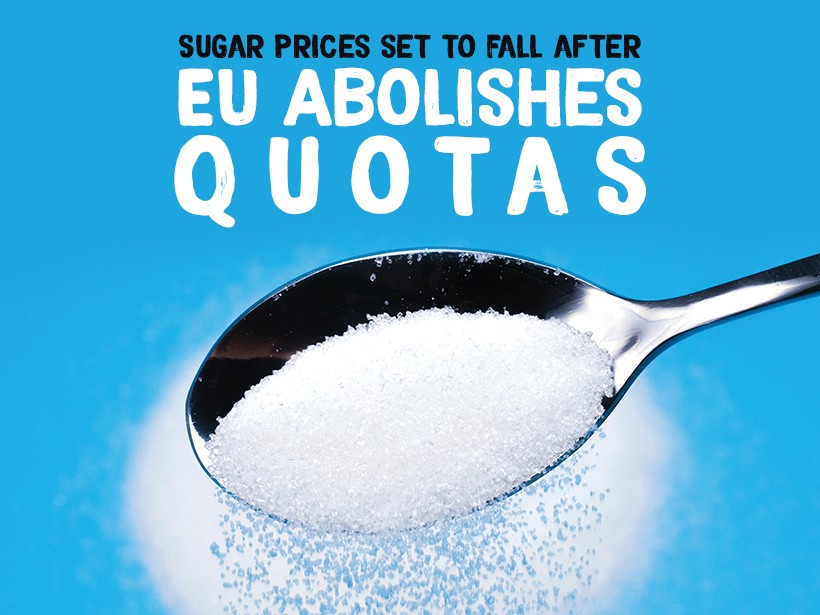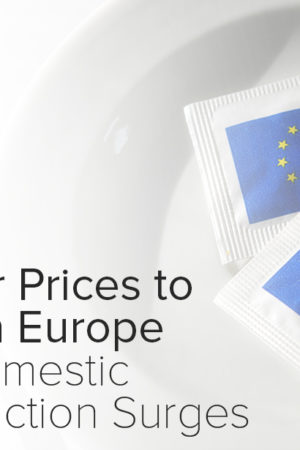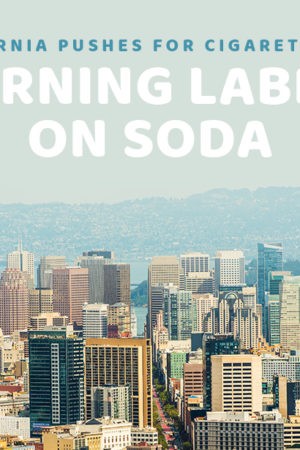European countries have made considerable efforts in the past several years to curb sugar consumption, faced, like many other areas of the world, with high rates of obesity. France, for example, was one of the first in the world to institute a tax on sugary drinks. The transition from 2017 into 2018, however, marked a new stage for the European sugar industry: the European Union decided to lift its 50-year-old sugar quotas and price minimums. The full effect of this deregulation has yet to be appreciated, but it seems to spell bad news for experts and regulators hoping to make sugar more expensive and less ubiquitous in our lives.
Sugar Production Up, Sugar Prices Down
Towards the end of last year, Brussels, the capital of the EU, finally abolished its half-century-old quotas and price floors on the sugar industry, opening the door for a rapid increase in sugar production in the EU. State support had kept sugar prices artificially high and, as a result, some smaller producers in business. The abolition of quotas and price floors threatens these smaller sugar producers with a price decrease, as larger competitors are now free to expand their business to meet demand and to charge less while still turning a profit.
Indeed, after the decision was announced last year, several European factories and beet farmers—who make most of the sugar produced in Europe—closed immediately, while at the same time some experts predicted a 17 percent rise in production.1 Some feared the price dip would mirror the 2015 dairy crash that occurred when the EU abolished its similar milk quotas, but this does not seem to be the case. Instead, large-scale producers have found new incentive to expand their business, no longer stifled by limits on production.
EU Sweet Beets in the International Market
Britain’s only sugar refiner, Britain Sugar, anticipates a 50 percent increase in production and has already begun expanding its production facilities. A British government spokesperson said: “The removal of EU sugar beet quotas will enable British growers to compete on a level playing field with other sugar producers around the world.”2 Indeed, European officials expect sugar exports to increase over the coming years, and prices to drop from their artificially high levels.
In its press release on the decision, the European Commission in Brussels reported that most of the sugar produced in Europe ends up in the processed foods and sodas of the food and drink industry. Addressing concerns that lower prices and increased production will negatively affect the European diet, the commission acknowledged the issue and outlined its (mostly voluntary) efforts to convince the industry to make healthier products: “[T]here is some evidence that high intakes of sugars in the form of sugar-sweetened beverages might contribute to weight gain[emphasis added].”3 Milquetoast indictments like this hardly express a determination to deal with the results of this potential increase in sugar consumption. If EU governments do want to take on obesity, diabetes, and other sugar-related illnesses, they will to be more convincing, and themselves more convinced.
NUTRITIONAL DISCLAIMER
The content on this website should not be taken as medical advice and you should ALWAYS consult with your doctor before starting any diet or exercise program. We provide nutritional data for our recipes as a courtesy to our readers. We use Total Keto Diet app software to calculate the nutrition and we remove fiber and sugar alcohols, like erythritol, from the total carbohydrate count to get to the net carb count, as they do not affect your blood glucose levels. You should independently calculate nutritional information on your own and not rely on our data. The website or content herein is not intended to cure, prevent, diagnose or treat any disease. This website shall not be liable for adverse reactions or any other outcome resulting from the use of recipes or recommendations on the Website or actions you take as a result. Any action you take is strictly at your own risk.
- California Pushes for Cigarette-Like Warning Labels on Soda - July 1, 2019
- Is a Slowdown in Australia's Sugar Consumption a Sign of More to Come? - June 24, 2019
- Groundbreaking Study Says the Sugar Rush Doesn't Exist - June 12, 2019































